It happened again.
I was talking to a job seeker last week and the conversation went something like this:
“So, can you tell me the types of challenges you are having with your job search?”
 “Well, I’m not sure if my resume is any good. Many of the jobs I apply to, I feel over qualified, but sometimes I apply to jobs where I’m under qualified. I used to feel as if I was confident in interviews, but now, I’m really crappy at them. Sometimes with the jobs I apply for I think I’m not old enough and other times I think I’m not young enough. I’ve changed my resume a lot so people can’t tell how old I am when they read it. I’ve been applying for jobs where I think have the right skill set, but sometimes it’s a stretch. I’m definitely not getting enough calls back for interviews.”
“Well, I’m not sure if my resume is any good. Many of the jobs I apply to, I feel over qualified, but sometimes I apply to jobs where I’m under qualified. I used to feel as if I was confident in interviews, but now, I’m really crappy at them. Sometimes with the jobs I apply for I think I’m not old enough and other times I think I’m not young enough. I’ve changed my resume a lot so people can’t tell how old I am when they read it. I’ve been applying for jobs where I think have the right skill set, but sometimes it’s a stretch. I’m definitely not getting enough calls back for interviews.”
“OK. Can you tell me why someone should hire you? What skills do you have that would add value to a company?”
“I’m hard working. I can juggle a lot of things at once – I consider myself a multi-tasker. I’m easy to get along with.”
Now before we go any further, please recognize, I’m not judging this person. Job seeking is hard. There are a lot of common job seeking traps that job seekers fall into.
This particular job seeker, a mid-level financial management professional, had fallen into the ‘stinking thinking’ job seeker trap. The anxiety of the job search had completely disconnected them from all of the talent, accomplishments, skills, expertise and experience that makes them employable.
Their head was filled with negative self talk (or stinking thinking) and they had completely veered away from the sweet spot of self-confidence that could easily persuade an employer of the value they could add to their organization.
Who had told them their resume stunk? That they were too old (or too young)? At what point had the decided they were crappy at interviews? The fact is, no one had told them any of these things. The common types of rejection an average job seeker gets in a job hunt had taken its toll and had created an imbalance between negative and positive. In other words, they could describe more reasons as to why they believe they weren’t getting hired than reasons as to why they believe they should be hired.
| Confidence and belief in who you are and what you have to offer is the first and most valuable element of finding a new job. |
Confidence and belief in who you are and what you have to offer is the first and most valuable element of finding a new job. It is the consistent thread that weaves together your resume, your cover letter and every discussion you have with a potential employer. It defines you. Confidence explains how you got to where you are in your career; it is the narrative that describes how your background is connected to your passion for what you do and how your passion has resulted in meaningful accomplishments.
Job seekers without absolute, red-hot confidence flounder. They tend to shotgun dozens of resumes to dozens of job postings and cross their fingers that someone will call them back. They lack focus about how their skills, experience and accomplishments are connected to relevant jobs that match their backgrounds. They have a difficult time answering even the most soft ball of questions that would allow them to tie their previous work experience to the jobs they are applying.
Confidence is not bragging. It is not boastful or arrogant. Confidence is being able to clearly demonstrate on your resume and in your cover letters how your background fits the requirements of a job and how specific experiences and accomplishments add value to the position your are applying for.
Want to capture your mojo? Become the king of confidence?
Here are a few tips.
Write down your skills on a piece of paper. Be very specific: the skills that were required to do your previous jobs. For example: If you were a supervisor, what skills were involved in that? If you were a marketing manager, what skills helped you to be successful?
Get used to talking about your skills and start telling stories that describe your skills in action. If you don’t consider yourself a good storyteller consider this question: What are some of your proudest accomplishments at your previous jobs? Why were you proud? What skills were required to be successful? What did you accomplish? How did your accomplishments inspire others? What were the results of your accomplishments?
Recognize false skill phrases. Resist the temptation to says the words, “I’m a hard worker,” or “I’m easy to get along with,” or “I’m a multi-tasker.” These are not skills, they are expectations of everyone who is applying for the same job! If you feel the need to say these things, back them up with specific stories that are tied to the job you are applying. For example, “I’m a hard worker, let me explain how….” or, “One of the things my previous boss liked about me was my ability to juggle a lot of different things at the same time, for example….” You have to describe what these often over-used descriptors mean and how they are tied to the argument you are making about why you are the best candidate.
Take a stab at writing your own ideal job description. What type of job is it? What would it look like? What job requirements would fit you best? What are the qualifications required that are a match for you? How would your ideal job description match your own passions, values and skills?
The bottom line is that we all have unique, valuable and employable skills that define who we are. The most successful strategy to a getting job offer starts with you defining and believing with all of your might, the elements that make you a unique and valuable asset to an employer.









